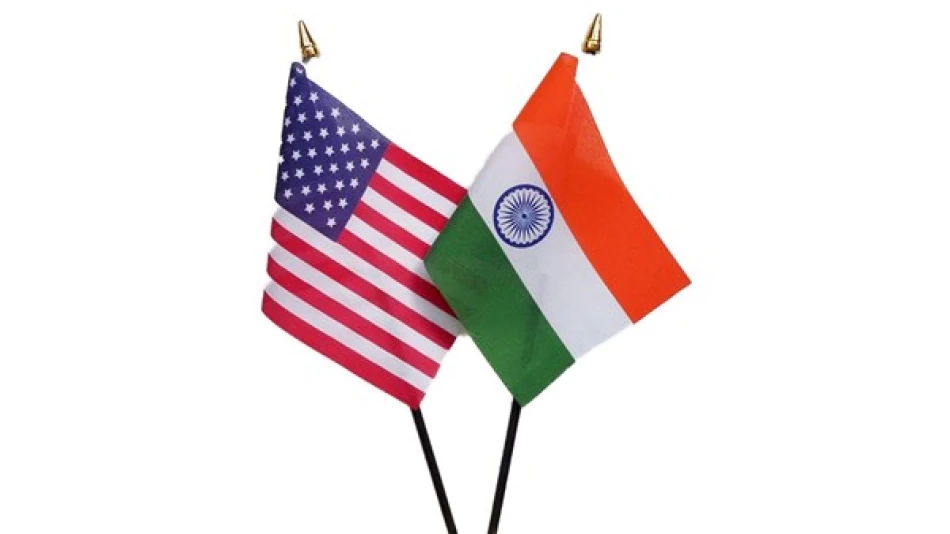
US and India Prepare for Trade Tariff Talks: Navigating Economic Ties
India-US Trade Talks Signal Potential Breakthrough Amid Trump's 50% Tariff Threat
India and the United States are set to hold crucial trade negotiations in New Delhi on Tuesday, aiming to resolve escalating tariff disputes that have intensified under President Trump's aggressive trade policies. The talks come just weeks after Trump raised tariffs on Indian goods to 50%, marking a critical juncture for the world's most populous nation as it seeks relief from mounting trade barriers that threaten its export-driven economy.
High Stakes for India's Export Economy
India currently faces some of the highest US tariffs among major trading partners, with most of its exports subject to punitive duties. This tariff burden has become increasingly problematic as India's economy relies heavily on exports of textiles, pharmaceuticals, IT services, and manufactured goods to fuel its growth trajectory.
The 50% tariff hike imposed last month represents a significant escalation from previous trade tensions, putting additional pressure on Indian exporters already grappling with global supply chain disruptions and competitive pressures from other Asian manufacturers.
Strategic Importance Beyond Economics
Geopolitical Considerations
These trade discussions carry weight beyond mere economic calculations. India represents a crucial strategic partner for the US in countering China's influence in the Indo-Pacific region. Unlike previous trade disputes with European allies or Mexico, the US-India relationship involves complex security partnerships, defense cooperation, and shared concerns about China's regional ambitions.
This dynamic creates unique leverage for both sides - India needs market access to sustain its economic growth, while the US requires India as a reliable partner in its broader geopolitical strategy.
Market Implications
For investors and businesses, the outcome of these talks will determine the viability of India-focused trade strategies. A successful resolution could unlock significant opportunities in sectors where India holds competitive advantages, particularly in technology services, generic pharmaceuticals, and light manufacturing.
Conversely, prolonged tariff disputes could force companies to reconsider supply chains that rely on Indian production, potentially benefiting competitors in Vietnam, Bangladesh, or Mexico.
Comparing Global Trade Patterns
India's struggle to secure favorable trade terms contrasts sharply with other emerging economies. Countries like Vietnam have successfully negotiated preferential access to US markets, while Mexico benefits from USMCA provisions. Even traditional rivals like China maintained significant trade volumes despite tariff wars during Trump's previous term.
India's challenge lies partly in its complex regulatory environment and the diversity of its export portfolio, making comprehensive trade agreements more difficult to structure compared to countries with more focused export strategies.
What Success Looks Like
A meaningful breakthrough would likely involve India offering greater market access for US agricultural products, technology companies, and financial services in exchange for reduced tariffs on its key exports. Both Prime Minister Modi's reference to the countries as "close friends and natural partners" and Trump's optimistic tone suggest political will exists on both sides.
The presence of Brendan Lynch, the US Assistant Trade Representative for South and Central Asia, indicates these preliminary discussions could evolve into formal negotiating rounds if initial progress proves promising. For India, securing even partial tariff relief would provide crucial breathing room for its export sector while demonstrating the Modi government's ability to navigate complex international trade relationships effectively.
Most Viewed News

 Layla Al Mansoori
Layla Al Mansoori






